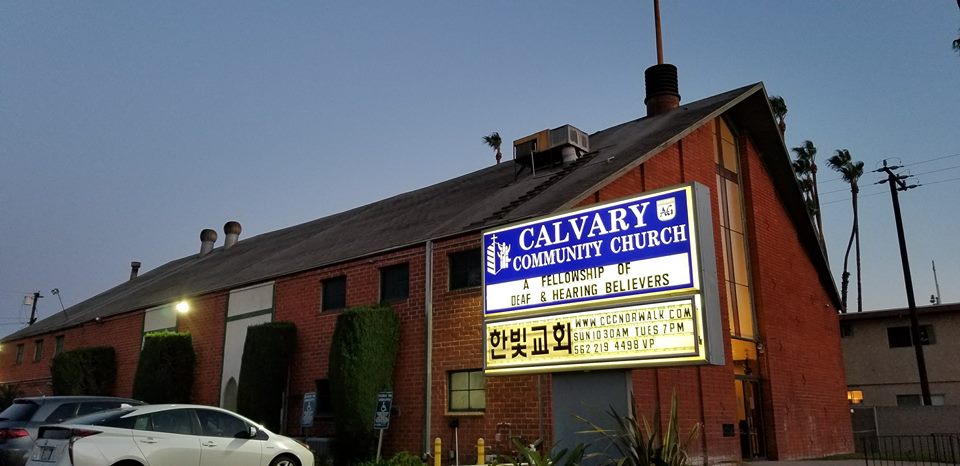Written by Laney Ribota
Cassie has an outgoing and lovable personality, which she expresses through her dancing, drawing, and chatting with people in the grocery store. She loves learning about the Lord, but has one problem. None of the churches in her area provide sign language during the service. This deaf 12 year old solely relies on reading lips and sign language to communicate. God made her this way — special, loving, kind and strong — yet she yearns to listen in church and join in worship with other believers. However, she regularly feels excluded from the body of Christ because American Sign Language is slowly being offered less and less in modern churches.
Staff writer for Healthy Hearing, Debbie Clason, argues that the deaf culture believes the hearing culture care a lot about the spoken word and does not respect ASL as a language. There seems to be an unfortunate misunderstanding about ASL. How do the deaf listen to God and the worship service if ASL is not offered? If ASL is offered in churches, part of the body of Christ can join together with their brothers and sisters and listen to the worship service, be a part of the church community, and serve together without any barriers or exclusivity.
CURRENT ACCOMMODATIONS
To understand why churches need to provide ASL, a discussion must begin about the problems in the modern church’s attempt at helping aid the hard of hearing and deaf. Some churches have innovated online videos with an ASL interpreter. While this allows the deaf to listen to a sermon at home or with the church community, this does not solve the problem of widespread accessibility so everyone can be included in their local body of believers. Churches that teach truthful theology, have excellent accommodations for people with disabilities, and provide an open community remain rare.
Alumna April Caputi believes it a privilege for the hearing to “church shop” without worrying about accommodations that may or may not exist. She believes without accommodations, there is no way for a deaf person who only speaks ASL, would be able to listen in church. She has seen first hand the language barrier in hearing churches when ASL is not accommodated. Although she uses a hearing aid and speaks English, her family members are not bilingual and only speak ASL. Caputi has attended Calvary Community Church in Norwalk which has the tagline “A Fellowship of Deaf and Hearing Believers.” She enjoyed the community of acceptance, but found the theology was inaccurate and did not grow in her faith there so she sought to find another church. Caputi was not born with the privilege of being able to “church shop” and find a home with great community, accomodations and theology. It is simple to assume God would not want some of his children isolated because he created them to be deaf. It is important for Christians to be together, build relationships, love each other, be held accountable and be united as one.
[pullquote speaker=”Rebecca Kelsall” photo=”” align=”right” background=”on” border=”left” shadow=”off”]They are a unique reflection of God, and they have something to contribute to His Kingdom. [/pullquote]
UNIQUE GIFTS
Deaf people are great communicators and can serve the church in unique and helpful ways that benefit the kingdom of God. Missionary journalist Rebecca Kelsall discusses the way the community is very special.
“They are a unique reflection of God, and they have something to contribute to His Kingdom.”
Although they lack the ability to hear, they are fully capable of thriving as a Christian. Churches who do not provide ASL lack the bridge to bind the hearing and the non-hearing together and therefore lack the opportunity for believers to not only worship but to use their unique gifts to serve together. Many deaf people who do not see their disability as truly negative, but as a blessing and appreciate their perspective on life and humility, according to Caputi. Authors Matthew S. Moore and Linda Levitan argue “The Torah expresses a compassionate view” on deafness as revealed in Exodus 4:11
“Deaf people are seen as part of God’s purpose in creating a diversity in humanity.”
People from all backgrounds and disabilities are part of God’s plan and should be treated with compassion. God intended for people to be unified in their differences and all should embrace that.
“Anywhere I attend [church] makes me feel disconnected and it is a terrible feeling of being like a fish out of water. It is part of the reason why deaf people don’t even go to church in that environment,” according to Caputi.
Church should be the first place where people feel welcomed, accepted and accommodated. If ASL or other aides are not offered and people of disabilities are not welcomed, then God’s children stop going to church and the church misses out on what it means to be God’s church. Deaf professor at Gallaudet University Dr. Barbara Kannapell states,
“Deaf people can understand each other 100 percent of the time, whereas outside of the Deaf community they get fragmentary information or one-way communication.”
If there is no skilled interpreter or ASL is not offered in the hearing church then the communication is broken. The ability of the deaf to comfortably talk and listen to the hearing is shattered. ASL is an essential factor of what makes up the deaf culture and without it there is a break in the culture. Just as there was ethnic barriers and division in Acts, there are disability barriers and division between hearing and non-hearing in the modern day church. ASL provides a way for the hearing to join the non-hearing.
AN ALTERNATIVE MODEL
What could be a possible solution to this problem of division and lack of accommodations for the deaf and hard of hearing? There are deaf churches around the country specifically targeted towards the deaf community. There are not thousands — in fact there are only three within forty miles of Biola.
These deaf ministries allow the deaf community to grow and build relationships with other deaf believers and feel a sense of belonging. This is a breakthrough for the hard of hearing and deaf population, however it does not fully captivate the “body of Christ” topic. The limited amount of deaf churches remain disconnected from the larger body.
Although deaf churches are a great attempt to reach the deaf community, it does not fully spread the Gospel and if “hearing” churches do not offer ASL then the problem remains with excluding deaf Christians. In a survey with ten Biola students and faculty, it was unanimously agreed that deaf churches sound great, but do not exemplify God’s plan for the body of Christ in the Bible. All participants stated that ASL should be provided in all churches across the world so believers can come together in unity.
[pullquote speaker=”Laney Ribota” photo=”” align=”left” background=”on” border=”right” shadow=”off”]When part of the body becomes excluded, it affects God’s good creation.[/pullquote]
There is a need to listen to God when he describes the church in the Bible. For example, Romans 12:4 says the church is one body made up of individuals all equal in Christ’s eyes. The body is treated equally but each part serves different roles. Those who were born deaf or who are hard of hearing should be treated as part of the body and be given opportunities as individuals to serve and join the service. Although deaf churches and ministries provide a safe place for the deaf to feel connected, genuinely loved and free of accommodations, they still prevent the non-hearing from growing in their faith with fellow hearing brothers and sisters.
When part of the body becomes excluded, it affects God’s good creation. God created humans in his own image, and therefore all humans should be welcomed as part of the body of Christ no matter their condition. God can create anyone to be born deaf and anyone is capable of becoming deaf at any point in time. Not providing ASL in churches affects all ages and therefore affects the way the youth grow up in the faith. Caputi explained how hard it was growing up in church and how the other kids “didn’t know how to deal with deaf people.” She was hurt by the lack of communication and acceptance by the other kids and teachers and ended up dropping out. April had a weak experience with her church growing up and it affected her faith due to not being valued equally by the other kids. This atmosphere should not affect how people grow in their faith and how they view church as an adult. April admits she is grateful for the church she attends now because it completely accommodates her needs and welcomes her into the church family, but it took her twenty-one years to find her home church. Many of April’s deaf friends and acquaintances had a similar youth experience but resulted in them abandoning the faith. Consequently, adults walked away from the church because there was a lack of acceptance, an unsound line of communication between teachers and deaf children, and a desire but no solution for a way the children could listen and learn about God with their peers. If ASL was implemented into the Sunday school lessons and youth programs, this could fix many problems and help build the kingdom of God in the future and deaf children could be taught they are not outsiders, but made in God’s own image.
Overall, the church needs to be educated and that will help the deaf be understood and accepted more openly. If pastors, worship leaders, service planners, youth pastors, audio and visual media ministries, and Christians as a whole were more educated on how the deaf listen, then there would not be such a dilemma in the modern church. ASL should be implemented in the church more so that barriers may be broken and the body of Christ can grow. Church should look like heaven on earth. This includes people of all ethnicities, gender, age, conditions, etc. In Revelation 21, the author records “…’There will be no more death or mourning or crying or pain, for the old order of things has passed away.’ He who was seated on the throne said, ‘I am making everything new!’”(Rev. 21:4-5). In heaven God’s people will be made new and there will be no distinguishing between his followers. This is the same outlook we must have on earth. By accommodating those with disabilities, the church welcomes all people and allows for them to communicate with other Christians and God and have access to fellowship and community worship. In order to listen to one another we need to speak the language of love first, even if it is formed in the shape of sign language.



